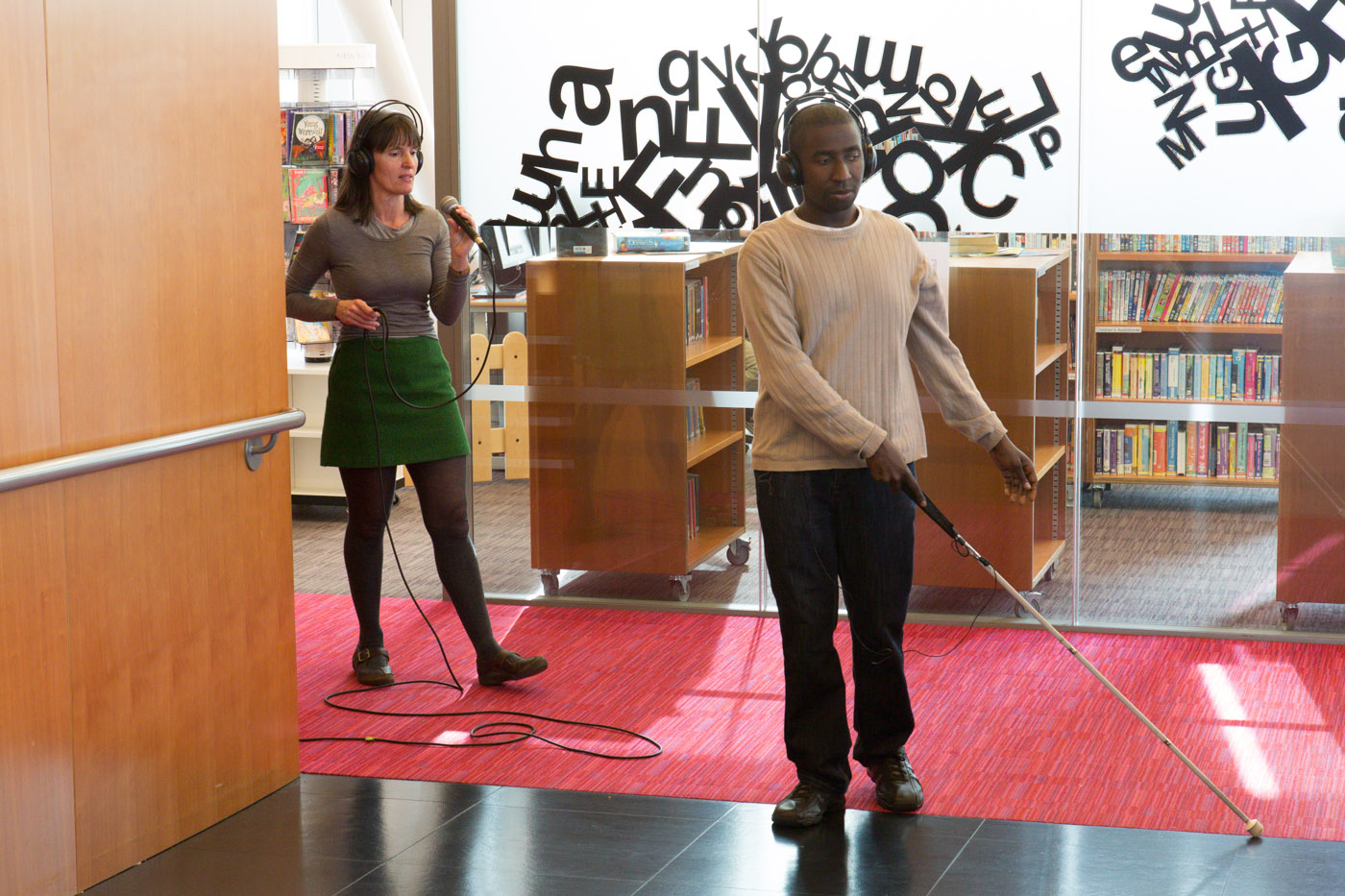Film Commissioned by People Dancing UK
On Tour in 2016 with a Composer/Curator award from Sound and Music.
“Salamanda Tandem was formed out of a passion to do something about inequality, and about art, by being a catalyst for ‘attitudinal change’.
Take movement; ‘Movement is life’ it is the domain of everyone. Movement is vibration, vibration is sound, sound is inside us and all around us.
In walking, sitting, lying down, in being still, in performance, in playing, out there on the streets, in the squares, at home, with people of all ages, and in the spaces between.
We’ve come up with a ‘Dance’ that realises this sort of potential, a non-divisive ‘Dance’ led by visually impaired people. We’re not ‘perfect’ bodies, we’re interesting bodies yes, but even when our not so perfect bodies are older, we’re still dancing, still sounding the space, still interacting with people. Because the people want to enter this space, it’s inclusive.
In a world dominated by sight and movement memory, fashion, transient beauty, bigger, higher, and faster; what happens when a visually impaired, blind, deafblind or profoundly disabled people takes a lead?
We find a new dance, a humanitarian growing form practiced between 2 or more people on an equal basis.
Looking into the core of ourselves and our society, we’ve always asked questions of who or what has status, who or what is beautiful. We’ve always looked into the art and money we make or don’t make, into what we perceive as valuable, and there our practice begins. The work begins in our own practice and we make it happen in synergy with others, in sustainable co-operation. In that moment when we’re really there in it, our anxieties dissolve and we know it isn’t relevant what we are out in the world.
So to make art, music and movement interesting it has to be inclusive, it requires us to inhabit and notice the moment to be awake to that.
These sorts of questions have taken Salamanda Tandem into ‘politics’, and the arenas of policy making, advocacy, training, professional education, and research, to yoga, person-centered ways of interacting, and to the heart of our practice and performance. To be a catalyst for attitudinal change, we’ve developed new forms and structures to enable hidden voices to be heard and audiences to expand, from passive recipients to become creators. A belief in equality and it’s enactment. We think of this as attitudinal change, it requires us to re-distribute power, re-configure what we do, how we think and how we behave. For example; in White Cane, blind and VIP performers become both choreographer and composer as the sound and movement of the long cane user form the cornerstone of the work. In Quarry-os-sion audio description is the art.
Salamanda Tandem’s politic means that each person’s contribution is made possible within a holistic social, environmental, cultural and economic context. And touch, music, the human voice, embodied experience and all the senses are essential ingredients in the process of making our performance”
